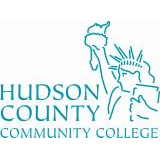
(View Complete Item Description)
The author's goals in writing Exploring Business were simple: (1) introduce students to business in an exciting way and (2) provide faculty with a fully developed teaching package that allows them to do the former. Toward those ends, the following features are included in this text:1- Integrated (Optional) Nike Case Study: A Nike case study is available for instructors who wish to introduce students to business using an exciting and integrated case. Through an in-depth study of a real company, students learn about the functional areas of business and how these areas fit together. Studying a dynamic organization on a real-time basis allows students to discover the challenges that it faces, and exposes them to critical issues affecting the business, such as globalization, ethics and social responsibility, product innovation, diversity, supply chain management, and e-business.2- A Progressive (Optional) Business Plan: Having students develop a business plan in the course introduces students to the excitement and challenges of starting a business and helps them discover how the functional areas of business interact. This textbook package includes an optionalintegrated business plan project modeled after one refined by the author and her teaching team over the past ten years.3- AACSB Emphasis: The text provides end-of-chapter questions, problems, and cases that ask students to do more than regurgitate information. Most require students to gather information, assess a situation, think about it critically, and reach a conclusion. Each chapter presents ten Questions and Problems as well as five cases on areas of skill and knowledge endorsed by AACSB: Learning on the Web, Career Opportunities, The Ethics Angle, Team-Building Skills, and The Global View. More than 70% of end-of-chapter items help students build skills in areas designated as critical by AACSB, including analytical skills, ethical awareness and reasoning abilities, multicultural understanding and globalization, use of information technology, and communications and team oriented skills. Each AACSB inspired exercise is identified by an AACSB tag and a note indicating the relevant skill area.4- Author-Written Instructor Manual (IM): For the past eleven years, Karen Collins has been developing, coordinating and teaching (to over 3,500 students) an Introduction to Business course. Sections of the course have been taught by a mix of permanent faculty, graduate students, and adjuncts.
Material Type:
Case Study,
Textbook
Author:
Karen Collins




















